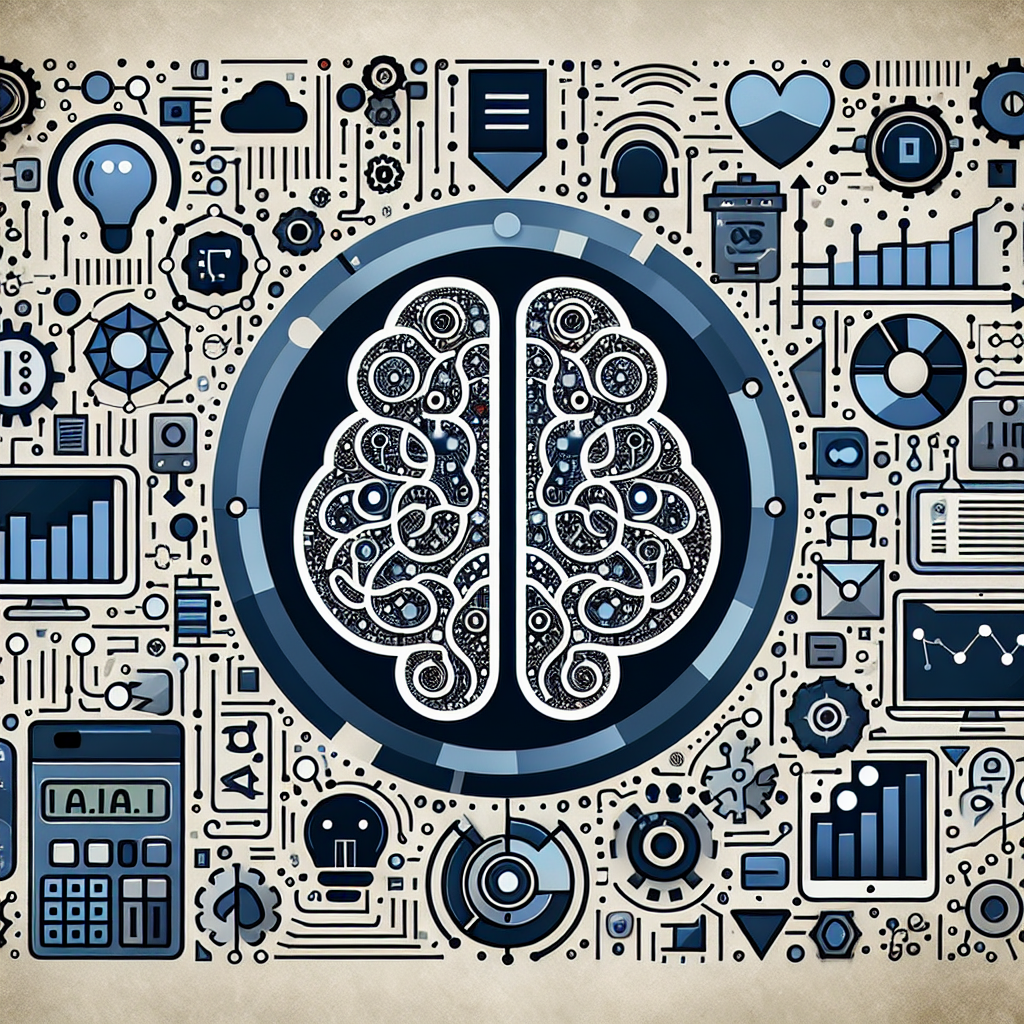Artificial Intelligence (AI) has been a game-changer in various industries, and business intelligence is no exception. AI-powered business intelligence tools and technologies are revolutionizing the way companies collect, analyze, and interpret data to make informed decisions. These tools use machine learning algorithms to uncover hidden patterns, trends, and insights from large datasets, helping businesses gain a competitive edge in today’s fast-paced market.
AI-powered business intelligence tools and technologies can help organizations in various ways, such as improving decision-making, optimizing operations, enhancing customer experiences, and predicting future trends. These tools can automate repetitive tasks, provide real-time insights, and enable businesses to make data-driven decisions quickly and accurately.
One key advantage of AI-powered business intelligence tools is their ability to handle vast amounts of data efficiently. Traditional business intelligence tools may struggle to process and analyze large datasets, leading to delays in decision-making and limitations in the insights gained. AI-powered tools, on the other hand, can handle massive amounts of data in real-time, providing businesses with up-to-date information and actionable insights.
Another benefit of AI-powered business intelligence tools is their predictive analytics capabilities. These tools can analyze historical data to identify patterns and trends, and predict future outcomes with a high degree of accuracy. By leveraging predictive analytics, businesses can anticipate market trends, customer behavior, and potential risks, allowing them to make proactive decisions and stay ahead of the competition.
AI-powered business intelligence tools also offer advanced visualization capabilities, enabling users to create interactive dashboards, charts, and reports that make it easy to understand complex data. These visualizations help users identify trends, outliers, and patterns at a glance, allowing them to quickly make sense of the data and draw meaningful insights.
Moreover, AI-powered business intelligence tools can enhance collaboration and communication within organizations. These tools enable users to share insights, collaborate on projects, and make data-driven decisions together, fostering a culture of data-driven decision-making across the organization.
There are various AI-powered business intelligence tools and technologies available in the market, each offering unique features and capabilities to meet the diverse needs of businesses. Some popular AI-powered business intelligence tools include:
1. Tableau: Tableau is a powerful data visualization tool that leverages AI and machine learning to help users explore, analyze, and visualize data in an intuitive way. Tableau’s drag-and-drop interface allows users to create interactive dashboards and reports quickly, making it easy to uncover insights from their data.
2. Power BI: Power BI is a cloud-based business intelligence platform that integrates seamlessly with other Microsoft products and services. Power BI uses AI to automate data preparation, identify trends, and generate insights, helping users make informed decisions based on real-time data.
3. Qlik Sense: Qlik Sense is a self-service business intelligence tool that uses AI to provide predictive analytics, natural language processing, and augmented intelligence capabilities. Qlik Sense enables users to create interactive visualizations, explore data, and uncover insights in a user-friendly interface.
4. IBM Watson Analytics: IBM Watson Analytics is an AI-powered business intelligence tool that leverages natural language processing and machine learning to help users uncover insights from their data. IBM Watson Analytics enables users to ask questions in plain language, and the tool generates visualizations and recommendations based on the data.
5. Domo: Domo is a cloud-based business intelligence platform that uses AI to provide real-time insights, predictive analytics, and data visualization capabilities. Domo integrates with various data sources and enables users to create interactive dashboards, reports, and alerts to monitor key metrics and KPIs.
In addition to these popular AI-powered business intelligence tools, there are also emerging technologies such as augmented analytics, automated machine learning, and AI-driven data preparation tools that are redefining the business intelligence landscape. These technologies aim to make data analysis more accessible, intuitive, and actionable for users, empowering organizations to make data-driven decisions with confidence.
FAQs:
Q: What is the difference between traditional business intelligence tools and AI-powered business intelligence tools?
A: Traditional business intelligence tools rely on predefined rules and queries to analyze data, while AI-powered business intelligence tools use machine learning algorithms to uncover patterns, trends, and insights from large datasets. AI-powered tools can handle vast amounts of data in real-time, provide predictive analytics capabilities, and offer advanced visualization features that traditional tools may lack.
Q: How can AI-powered business intelligence tools benefit my organization?
A: AI-powered business intelligence tools can help organizations improve decision-making, optimize operations, enhance customer experiences, and predict future trends. These tools can automate repetitive tasks, provide real-time insights, and enable businesses to make data-driven decisions quickly and accurately, giving them a competitive edge in today’s market.
Q: What are some popular AI-powered business intelligence tools in the market?
A: Some popular AI-powered business intelligence tools include Tableau, Power BI, Qlik Sense, IBM Watson Analytics, and Domo. These tools offer unique features and capabilities to meet the diverse needs of businesses, such as data visualization, predictive analytics, natural language processing, and augmented intelligence.
Q: How can I get started with AI-powered business intelligence tools?
A: To get started with AI-powered business intelligence tools, you can explore different tools and technologies available in the market, evaluate your organization’s needs and requirements, and choose a tool that aligns with your business goals. Many AI-powered business intelligence tools offer free trials or demos, allowing you to test the tool before making a purchase decision.
In conclusion, AI-powered business intelligence tools and technologies are transforming the way organizations collect, analyze, and interpret data to make informed decisions. These tools leverage machine learning algorithms, predictive analytics, and advanced visualization capabilities to help businesses gain insights from their data quickly and accurately. By harnessing the power of AI in business intelligence, organizations can unlock new opportunities, drive innovation, and stay ahead of the competition in today’s data-driven world.

